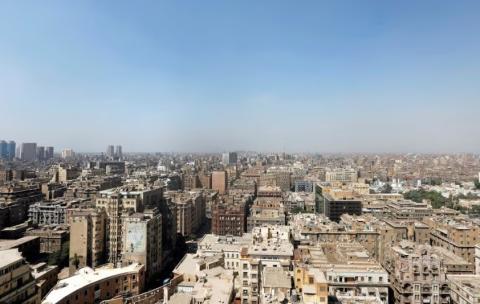
Review is fourth under Egypt’s latest 46-month IMF loan program approved in 2022
Egypt had requested financing under the RSF since 2022, with hopes it could unlock up to an additional $1 billion
CAIRO: The International Monetary Fund will this week begin its delayed fourth review of Egypt’s 46-month loan program, Prime Minister Mostafa Madbouly said on Sunday.
The review had originally been scheduled for the end of September.
It comes under an agreement Cairo signed with the IMF in April, expanding an original loan from $3 billion to $8 billion to help Egypt manage its economic challenges.
The fourth review will unlock $1.2 billion in new financing.
At a Cairo joint news conference with IMF’s managing director Kristalina Georgieva, Madbouly said the IMF team would start work on the review on Tuesday “with Egypt’s central bank and relevant ministries.”
Georgieva praised “the commitment and the strength of the actions Egypt has already taken.”
She cited moving to “a flexible exchange rate regime,” boosting “the role of the private sector as a source of growth and jobs” and consolidating “social protection by moving away from untargeted subsidies.”
The IMF chief acknowledged the challenges faced by the country’s economy amid regional conflicts.
She said “conditions have become more difficult for no fault of your own, but because of the conflict in your neighborhood.”
Earlier on Sunday, Georgieva met President Abdel Fattah El-Sisi.
A statement from the presidency quoted El-Sisi as saying Egypt “would prioritize easing the burden of inflation on citizens,” focusing on curbing rising prices, attracting investments and empowering the private sector.
The government raised fuel prices last month by up to 17 percent after inflation hit 26.4 percent in September.
Last month, El-Sisi said his government might reconsider the loan program if it creates “unsustainable public pressure.”
He cited challenges from ongoing regional instability, particularly the prolonged conflict in the Gaza Strip.
Despite the rising cost of living, Georgieva said Sunday Egyptians “will see the benefits of these reforms in a more dynamic, more prosperous Egyptian economy.”
She said she expected inflation to slide to 16-17 percent by the end of this fiscal year (to June 2025) after peaking at 37 percent.
Jihad Azour, the IMF’s Middle East and Central Asia director, last week also acknowledged challenges faced by Egypt’s economy.
In addition to the Gaza, Lebanon and Sudan conflicts, he cited a significant decline in Suez Canal revenue.
“The reduction in trade volume going through the Suez Canal has affected revenues by more than 60 to 70 percent on average, which would represent $4.5 to $5 billion in revenues,” Azour said.
In May, the IMF said traffic through the canal dropped by 66 percent the previous month as ships avoided Red Sea shipping lanes to avoid attacks by the Iran-backed Houthi militia in Yemen.












